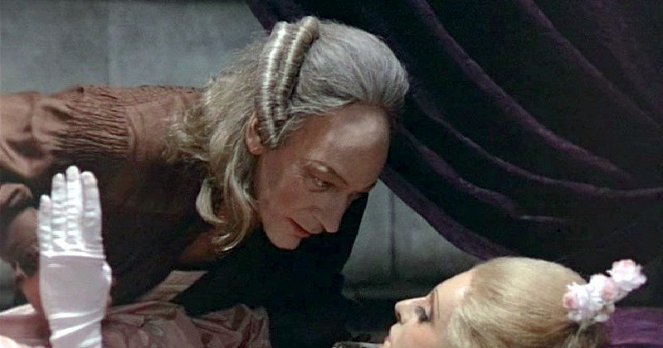Directed by:
Federico FelliniScreenplay:
Federico FelliniCinematography:
Giuseppe RotunnoComposer:
Nino RotaCast:
Donald Sutherland, Tina Aumont, Dudley Sutton, Reggie Nalder, Diane Kurys, Chesty Morgan, Sandra Elaine Allen, Daniel Emilfork, Mary Marquet, Micha Bayard (more)Plots(1)
Federico Fellini's darkest film cracks through the myth of Giacomo Casanova. As played by Donald Sutherland, the notorious womanizer is presented as a pitiable and terrifying figure. Casanova craves respect as a scholar and yearns to pursue his interest in alchemy. A sex scandal lands him in prison, but an escape to Paris provides him a new lease of life. Yet every Court in Europe and its attendant patrons and hostesses will only entertain him if he lives up to his reputation in the ritual displays of sex and courtship which form part of the daily life of 18th Century Europe. Fellini had dealt with the theme of the frustration of human desires in La Dolce Vita. In Casanova, the nobleman's search for happiness achieves tragedy, a painful reflection of the human condition. (Mr. Bongo Films)
(more)Reviews (2)
Pier Paolo Pasolini vs. Federico Fellini. Salo, or The 120 Days of Sodom vs. Fellini's Casanova: the score is one to nothing. What do both films have in common? It is the effort to go through allegory and analogy to the furthest extreme of the depicted topic, to explore the very limits of the matter through metaphor, and even to go just beyond those limits where the true nature of the matter is revealed. Both films portray the vanity and debauchery of seemingly noble life (of the higher classes, although this detail probably did not matter to Fellini), the hidden essence of human entertainment, which quickly turns into a sneer and depraved orgies, etc. Yet while Pasolini had the courage to undergo this cinematic game of searching for the ultimate extreme, where society and film can essentially reach to metaphorically depict all of this, Fellini stops somewhere halfway. Fellini's Casanova is not surprising in any way - in fact, Americans could have made it, they just would have to find a European who would package the film in pastels and tinsel a la Rococo. Well, it is no wonder that Fellini won several Oscars in his career, while Pasolini received a different honor the year before, which speaks much more about his art than Fellini's golden statue (and I am back to that tinsel, Mr. Fellini, where are your earlier films...).
()
Fellini's Casanova has something of Baron Munchausen, Lemuel Gulliver, and the Vicomte de Valmont in it, and yet we would look in vain for Barry Lyndon. The image of his life is opulent and exuberant, yet tender, fragile, and comforting. Fellini works out his typical cinematic frills on the side of the one-man story, but it is Donald Sutherland's face that's chiseled in marble here. I am indeed a long way from becoming a satisfied and above all happy consumer of Fellini, but I could indulge this Renaissance man to a greater extent. His life, so wastefully ended at Duchcov, demands it, just like the renaissance of his mechanical mistress. I have, after all, a lot of catching up to do. So far I've only seen The Bashful Casanova (1936), Casanova Cat (1951), Casanova 70 (1965), That Night in Varennes (1982), The Young Casanova (2002), Casanova (2005) and the series Casanova (2005), which is nothing, and right now I'd most like to see Pfui, wie nackt! (Skandal in der Casanova-bar) (1929).
()


Ads